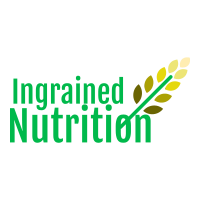It likely comes as no surprise that coffee is one of the most popular drink choices in the world, however people seem to have mixed views on if this high caffeine drink is good for us, bad for us or neutral. It irks me when I drink my morning coffee and people say to me “should a dietitian be drinking coffee?” Most dietitian’s I know love a coffee, and perhaps we know something that you don’t.
What is Caffeine?
Caffeine occurs naturally in foods, such as coffee, tea and cocoa and been used for thousands of years as a mild stimulant. Products are also available with added caffeine, including coke and energy drinks.
Health Benefits of Coffee
A recent study tracked close to 20,000 people over 10 years and found people who drank at least two cups of coffee per day were 22% more likely to have a longer lifespan with this percentage increasing for those who consume 4 cups per day. Other evidenced-based benefits include:
- Coffee contains antioxidants which have disease protective benefits and anti-inflammatory properties.
- Studies have shown a decreased risk of type 2 diabetes among regular coffee drinkers
- Appears to be protective against cancer development
- Other studies have shown coffee to reduce the risk of other diseases, including cardiovascular disease, Parkinson’s, liver disease, colorectal cancer and even Alzheimer’s
- Improves cognitive/brain function
- Improved exercise performance
- Reduces risk of developing gallstones
- Despite caffeine temporarily increasing blood pressure, there is no long term increase in risk for high blood pressure
- Coffee is not dehydrating when consumed in moderation
What is a Moderate Coffee or Caffeine Consumption?
Food Standards Australian New Zealand (FSANZ) cite the following as a “reasonable” caffeine intake per day:
Under 18 years of age: No more than 3mg caffeine/kg of body weight in a single serving e.g. for a 40kg child=120mg/day
Over 18 years old: Maximum 400mg per day (all sources)
Pregnant & breastfeeding: Maximum 200mg caffeine/day (all sources)
Caffeine content of different food and Beverages
- Instant coffee: 80mg in 1 tsp
- Espresso coffee: 145mg per 50ml cup
- Coke: 35mg in one can
- Energy drinks: 77mg in one small can red bull
- Black Tea: 50mg per cup
- Dark chocolate: 40mg per 50g serve
- Milk chocolate: 10mg per 50g serve
- Cocoa powder: 12mg per tbs
When to Reduce Coffee Consumption
If your coffee order includes added sugars, syrups and large size take-away cups the pros may not outweigh the cons due to the high sugar and kJ amount. Other reasons you may need to reduce your coffee intake:
- Reflux/heartburn. You might try limiting your consumption of both coffee and tea if you suffer from reflux and see if your symptoms improve. Both can relax the lower oesophageal sphincter which can lead to the backward flow of stomach content. But not every food and beverage affects individuals in the same way.
- Overstimulating bowels. Coffee is a natural bowel stimulant and for some this may stimulate frequent opening or loose bowels, however for most regular coffee drinkers this effect doesn’t last.
- Causing headaches, GI issues, and skin rashes. Coffee is high in the naturally occurring plant chemical salicylates, which some people are intolerant to, if you suspect this is the case for yourself, see a dietitian who works in this area.
- Increased anxiety. As coffee contains the stimulant caffeine, increased intake for those with anxiety can exacerbate symptoms.
Coffee and Pregnancy
Can you drink coffee whilst pregnant? Absolutely. It is recommended to have no more than 200mg of caffeine daily. 1 cup of coffee= 80-100mg each with large espresso coffee’s containing more, so if this is your choice of coffee limit to one per day. Excessive caffeine consumption may reduce fertility, particularly in men, so keep to 2 cups of coffee or less whilst trying to conceive. Early pregnancy studies have shown an increased risk of miscarriage if consuming more than 300mg daily and may also be linked to growth restriction however studies are not conclusive.




